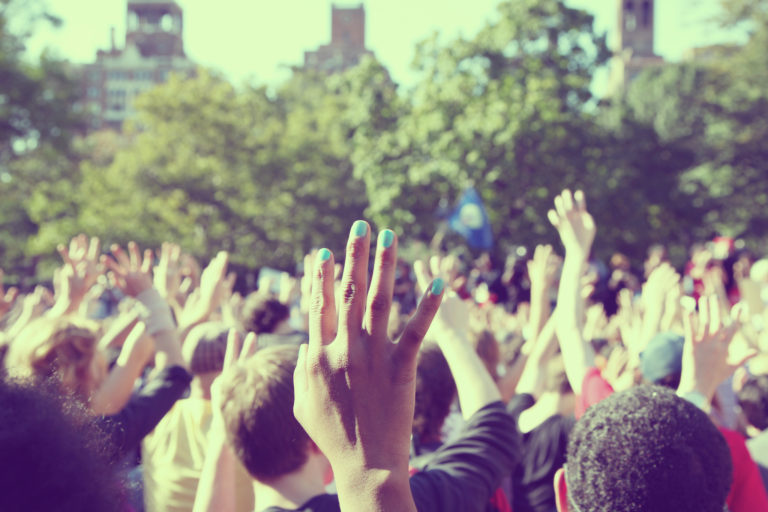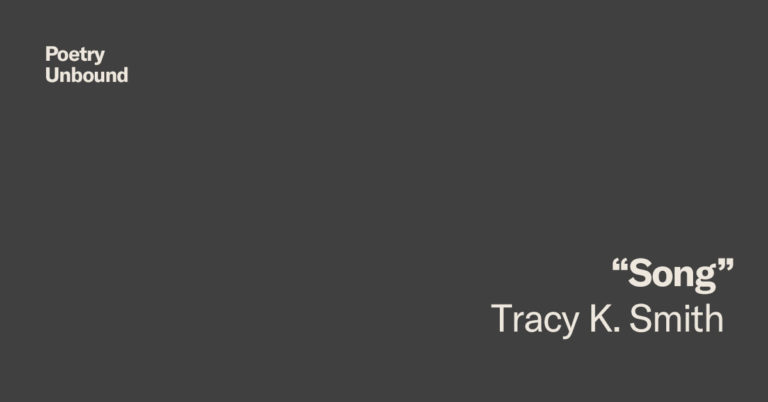
Image by Darwin Yamamoto/Flickr (CC BY-SA 2.0)..
Have Your Heart Be Where Your Feet Are
In medieval times, there were many creative ways to torment and kill people. One of them was to tie a person to four wild horses and have them take off in different directions, tearing the person limb to limb.
Today, we are just more discrete and subtle about it.
We are the masters of our own torture.
We do this to our own selves today, each and every day.
We rip our own selves apart, limb to limb.
We have at our disposal technologies that would have been unthinkable a few decades ago, containing in the palm of our hand access to more information than we did in sending a ship to the moon not so long ago. The technology has not resulted in bringing about peace at a world level. But I want to focus on another absence of peace: peace in our hearts. What takes place “out there” in the world and what takes place “in here” in our hearts are linked, intimately connected.
All of our traditions point to this reality. Prophet Muhammad was once returning from a battle in which the nascent Muslim community had lost many valiant heroes. Even the Prophet himself had been wounded. He told his inner circle that they were returning from the “lesser struggle” and ready to resume the “greater struggle.” Thinking back to the enormity of the battle they had just come from, the companions of Muhammad shuddered to think what this greater struggle would be. With a shy smile, Muhammad revealed that the great struggle is the struggle against our own inner enemy, our greed, our selfishness, our carnal self.
In the Jewish tradition, we are taught that tikkun olam — the healing of this fractured and broken world — is itself a spiritual practice. Healing of the world and healing of our own hearts are linked, part of one practice.
Many of us can sit, or be taught to sit, in a quiet room, light a candle, burn incense, play soothing music, close one’s eyes, and achieve some semblance of peace and tranquility. Can we keep that peace when we open our eyes? Can we maintain tranquility when we come out of the quiet room and have cranky children and grumpy partners come at us? Can we maintain the peace if there is no cranky children and grumpy partners, only a loneliness? How do we practice the peace and tranquility where it counts: in the very midst of a world that values “busyness” more than peace? What do we do when what others mistake as solitude is actually a profound alone-less, a craving for company?
One of the teachings of the Prophet with regards to these questions was this profoundly simple advice:
Have your heart
be
Where your feet
are.
It is in fact a useful spiritual practice to repeat these words — saying them slowly, till its insight dawns inside our hearts.
Muhammad’s saying was a reminder that, most of the time, we are in fact not where are feet are. We are not here. Or at least we are not all here. The “where” that our heart is not so much a place but a different time: past, and simultaneously, the future.
We are everywhere but in the now.
We rip ourselves apart, projecting ourselves both into the past that is gone and into the future that is not yet here. We hurl ourselves, and in the process, we end up ripping our own being, our own heart.
The past that we hurl ourselves into is usually a pain: Why did something not happen? Why did mommy not love me the way that I deserve to be? Why did that person do something bad to me? Sometimes it is missing a happier state, and wondering why we are no longer in that state.
The future that we project ourselves into is a hope, and ironically, a fear: What if something bad happens to me? What if I lose something precious: parents, children, success, wealth, health, life?
At times, as strange as it sounds, this projecting into the future, is actually through an illusion of hope:
I need to finish my school, so I can get a job, then I’ll really start living.
I need to find a person to love, then my life will be complete.
I need to get a raise, then I can afford to buy a house.
I need to buy a nicer house, then I will have really made it.
I need to get out of this dead-end job, then I’ll be really living it up.
I need to find Mr./Mrs. Right (Mr./Mrs. Right #2, #3, #4….. ) and then, then I’ll be whole.
I need to have a child, then my life will be complete.
I need to have my children hurry up and leave the house, then I can really have some freedom.
I need to retire, so I can really start enjoying life.
We forget that right here and now is actually our life. There is no “pre-life.”

Hurled into this past, projected into this future, we are everywhere (or more properly, “everywhen”) except here and now. And it is only in this here and now, this eternity collapsed into the now, that we are truly alive.
The spiritual teachings of Islam have a powerful way of returning the focus to the present moment. One of Muhammad’s spiritual descendants, the Persian poet Sa’di, returns to the theme of the eternal now and states quite simply that gratitude is related to the breath. Every now is linked to the expansion and contraction of the heart, the enlarging of the chest and the release of the breath. The only moment in which we are alive, truly alive, is the space between the time that we take in the breath into our heart’s center and when it is released. And each cycle of breathing requires two gratitudes.
This is the eternal now, that eternity collapsed into the here and now. We live only in this present moment.
This is not a call to hedonism, not a simplistic carpe diem, not a license to forego communal responsibility, ritual, and accountability. It is rather a reminder to be fully present, with all of our heart, all of our soul, and all of our mind here and now, with whomever we are with.
There is a reminder of this in Muhammad’s mannerism. We are told that when someone would speak to him Muhammad would orient his entire body rather than merely turning his head towards them. In that moment that he was with someone, he was whole-heartedly present, giving his undivided attention. When someone else would speak up, he would again reorient his whole body towards the second speaker. In being whole himself, he created an ambience in which others could seek and find wholeness.
We live in a world of multi-tasking. I see it every time I am out, and not just around young people — on dates, in restaurants, even in bathrooms, everyone is on their devices. They are all reaching out for acknowledgement, for connection, and yet…they are profoundly lonely. Everyone is saying: “like” me, comment on me, text me, touch me, be with me. But they themselves are not here. We have become a society of fragmented, broken, centrifugal souls.
How we are living now is not how we have to live. We are actually made to be whole. We are made in the image of the One God, who’s Whole, and the source of Wholeness. It’s because That One is One that we can become one, we can become whole, we can become healed. But we cannot become whole by hurling ourselves into the past and the future, into a million Facebook messages and texts. To be whole, we have to become like Muhammad, people who can orient all of themselves to be with the people that we are with at that given moment.
I am reminded of the great John Legend:
‘Cause all of me
Loves all of you
Love your curves and all your edges
All your perfect imperfections
Give your all to me
I’ll give my all to you
To give our all to one another, we have to be all here. Not partially here, not kind of here, not sort of here, not one-third here (two-thirds in the past and present) — all here.
There is love,
There is God
There is wholeness
There is healing
There is an eternity
In this Now.
This is why the mystics of Islam called themselves “children of the moment.” They are like children — fresh, fluid, joyous, filled with awe in this moment where an eternity comes to reside.
The practice begins: breathe into the heart center, feel the breath in your heart, and release the breath.
Be where the breath is.
And it is this eternal now, this ever-present unfolding of God in which Muhammad said: “I have a Moment with my Lord.”
When we are here and now, when we are here with all of our heart, all of our soul, all of our mind, we too have that moment with our Lord.
How lovely it is to be all here,
to be here where our feet are.
And how sweet it is.


Share your reflection